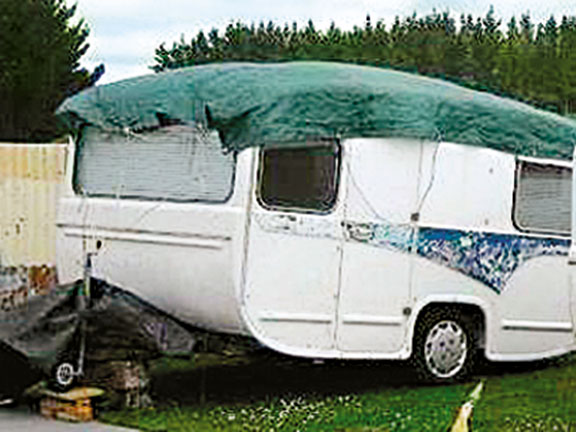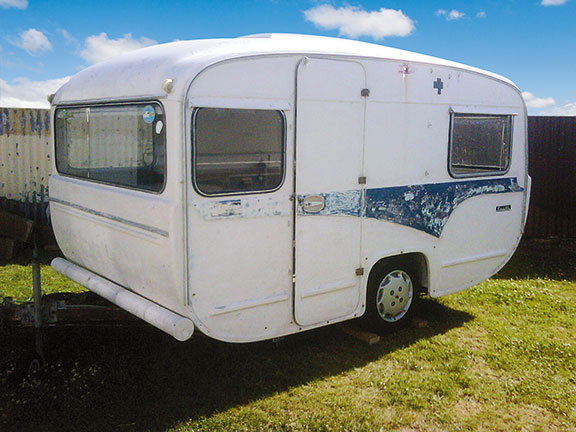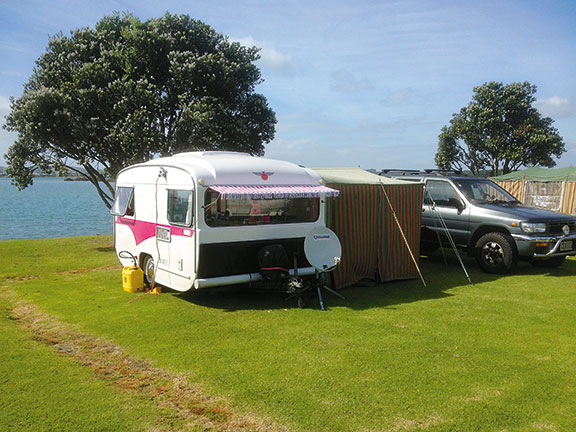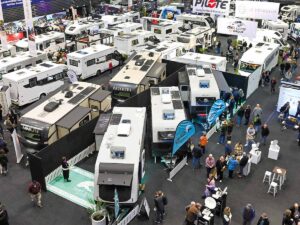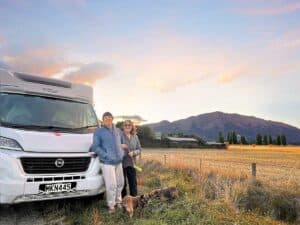When it comes to spending your hard-earned cash on the recreational vehicle of your dreams, it pays to do your homework. Many are the tales of woe from a first-time buyer who failed to read the fine print, remained blissfully unaware of government regulations, or found out too late why that incredible bargain buy wasn't a bargain at all.
Before you buy a lemon, take your time and run through our handy checklist.
Which RV is right for me?
Motorhome A motorhome will suit those whose preference is for a combination vehicle and mobile home, the freedom camper, a person who values maximum manoeuvrability in campgrounds, and anyone who wants to set up camp with minimum fuss. The downside is motorhomes — by virtue of their size — can be difficult to park in urban areas. Caravan Caravans can go most places a motorhome can go and they can also be used for freedom camping, providing the driver is competent towing and at getting in and out of awkward places. Set-up time is usually a little longer than with a motorhome and less convenient when it's raining. However, once camp is set up, the tow vehicle is free for jaunts without the need to unhook power. Camper trailer Camper trailers are not as popular in New Zealand as across the Tasman and overseas, although this is changing slowly, as purchasers weigh up the value for money, easy set up and off-road capacity of these compact vehicles.Know your tow
Matching your tow vehicle to your caravan or trailer is of high importance. Get it wrong and the result could be disastrous. Check laden and unladen weights carefully and ask the manufacturer which tow vehicle they recommend, or go online and read suitable vehicle tests. Ask if electronic stability and anti-sway devices have been installed.Make a wish list
Make your dreams come true by creating a careful list of all the features you need and those you want. Do you need a good-sized shower and internal toilet or would an amenity tent with camping shower work and afford more room and a better internal layout? Work through every detail thoroughly — size of table needed, size of beds, how many beds? Think about comfort and privacy. Will you be entertaining friends? How much internal seating will you need? How big is the galley? Do you need a large fridge/freezer or will an additional chilly bin do? What about storage, space for your toys, roof-racks or bike racks?Future proof your vehicle
Right now your RV might suit you to the ground, but what about down the track? Will you need larger fresh and greywater tanks? More beds, a better bathroom, an additional awning, solar panels, a more advanced electronics package or a larger generator? What new features can be added as time and money permit? What about a tow-bar, bike racks and larger gas bottles?Hot bodies
Not all RVs are created the same. Many New Zealand-made vehicles are built in the traditional (coach-build) way with aluminium panels attached to wooden frames. Most have stood the test of time, while the jury remains out on some of the newer, lighter construction methods combining aluminium framing with composite walls. Underneath, a hot-dipped chassis is compared to painted chassis. Good or bad depends on where you intend to go. Whichever construction method you choose, make sure you do your homework first.Read the fine print
What — exactly — does the warranty cover you for? What modifications does the manufacturer specify can be made (and by whom) without making the warranty null and void? Does the vehicle come with a comprehensive service record? Are gas and electrical certifications up to date, and have you been given the paperwork as a record? Can the warranty be transferred?Do your homework
Read reviews (nzmcd.co.nz) look at online forums, join specialist clubs and ask current or previous owners. If you have an RV centre nearby, pop in for a chat about what to look for and ask which vehicles come in most frequently or need costly repairs. Most specialists are only too happy to offer impartial opinions, especially if they are likely to be asked to provide pre-buy checks, service or parts down the line. Always buy from a reputable dealer.Try before you buy
When you've narrowed down your choice of vehicles, see if it's possible to spend a small amount of time trialling it (preferably overnighting in it), so you can carefully look in all nooks and crannies with a high-powered torch. Use your nose and eyes to detect signs of mould or damp, water stains, bubbles or delamination.Checklist
- Check the chassis for rust, and also for 'bubbles' which may indicate a quick cover-up paint job.
- Check the suspension to ensure it's up to what you plan to put it through when off-roading or just getting off the tar seal.
- Check wheels and brake-lines and tyres for good tread. Find out the replacement cost.
- Look for water damage around windows, doors and hatches. Check carefully for leaks where solar panels or satellite dishes have been added. Look under seats and inside storage.
- Beware when buying an imported 'van. Water can seep into places too difficult to see or access for repair and hidden rot can set in with disastrous consequences. We've heard the horror stories — including one of a second-hand UK caravan which literally fell apart on its first roadtrip due to unseen water damage. Note: UK caravans have a life expectancy of around 14 years. Check the serial number on the chassis or chassis plate to find out how old the caravan is. Avoid sandwich-body caravans from the '80s, as many suffer from structural problems. Take a damp meter when testing a second-hand 'van.
- Make sure pumps, appliances, lights, and electrical equipment are all in good working order.
- Ensure vents have not been covered.
- Look for certification to ensure the vehicle and all of its appliances meet current New Zealand standards.
- Make sure your vehicle — especially if imported — is not stolen.
- Look beyond the styling for the substance. Ensure rugs, cushions, paintings, wine bottles and fruit bowls are not hiding costly faults.
- Open all doors, windows, vents, cupboards and storage lockers. Lift mattresses and check gas struts. Turn on taps and lights.
- Check gas bottles.
- Don't underestimate the cost of any modifications or repairs — keep a running record and use it to bargain for a price reduction or added extras.
- Finally, ensure you are aware of all restrictions and on-road costs which may prevent you from getting the maximum enjoyment from your recreational vehicle. Invest the time in making a sound purchase and you'll be assured of happy travels.

